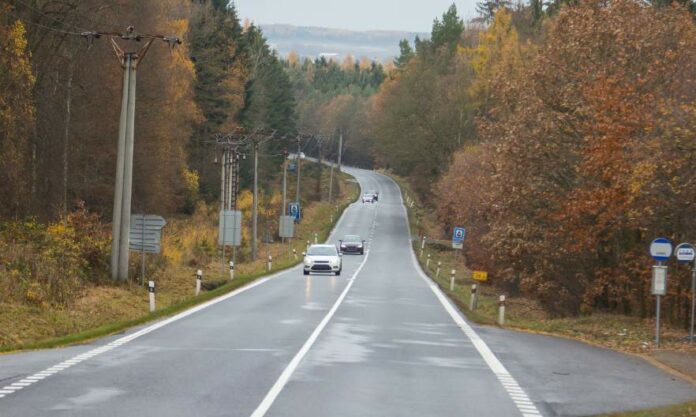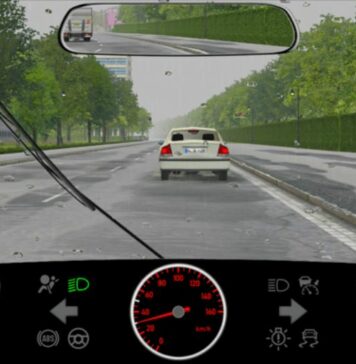Can I Drive in Germany with a Kosovo License? The short answer is: Yes, but with certain conditions. Tourists can use their Kosovo driving license for a limited period, while permanent residents will eventually need to convert it to a German driving license.
We will look into the details of these regulations and provide a comprehensive guide for Kosovo license holders in Germany.
Drive in Germany with a Kosovo License
Exploring the roads of Germany can be an interesting experience. The well-maintained highways, scenic routes, and the thrill of the Autobahn are something many look forward to. However, for Kosovo license holders, it’s essential to understand the specifics of when and how they can drive.
Driving in Germany as a Tourist with a Kosovo License
If you’re visiting Germany as a tourist and hold a Kosovo driving license. Tourists are permitted to drive in Germany with a Kosovo license for a limited duration, typically up to six months from their date of entry. This means you can explore the vast landscapes, bustling cities, and everything in between without much hassle.
However, it’s essential to be aware of some key traffic rules:
- Speed Limits: The famous roads do have sections without specific speed limits, but it’s recommended to maintain around 130 km/h. In urban areas, the limit is usually 50 km/h, and on country roads, it’s 100 km/h.
- Right-hand Driving: Germany, like most of Europe, drives on the right-hand side of the road.
- Parking: Blue signs with a white ‘P’ denote parking areas. Some areas might require a parking disc or payment.
Driving as a Permanent Resident with a Kosovo License
For those considering making Germany their long-term home, the regulations differ slightly. While your Kosovo license is valid initially, there’s a duration after which you’ll need to convert it to a German driving license. This period usually ranges from six months to a year of establishing residency in Germany.
To drive after this period, converting your Kosovo license becomes very important. This process, detailed in the upcoming sections, includes documentation, potential tests, and fees.
Converting a Kosovo License to a German License
If you’ve decided to stay in Germany for an extended period, converting your Kosovo driving license to a German one is crucial. This ensures you’re in line with German driving rules and your driving rights remain uninterrupted.
For the majority of standard license categories, such as A1, A2, A, B, BE, C1, C1E, C, CE, D1, D1E, D, and DE, you don’t need to take theoretical or practical exams. However, for C- and D-Classes, an eye examination and medical fitness proof are mandatory.
| Issuing State of License | Eye Examination Required | Proof of Medical Fitness | First Aid Proof Required | Theoretical Test Required For Classes | Practical Test Required For Classes |
|---|---|---|---|---|---|
| Kosovo | Only for C-/D-Classes | Only for C-/D-Classes | No | No test required for classes AM, A1, A2, A, B, BE, C1, C1E, C, CE, D1, D1E, D, DE | No test required for classes AM, A1, A2, A, B, BE, C1, C1E, C, CE, D1, D1E, D, DE |
Renting a Car in Germany with a Kosovo License
For Kosovo license holders the legal requirements of renting a car in Germany have been set up. Germany is also well-known for its great transport network, but having a car of your own lets you take the less-traveled routes, visit unknown destinations, and allows you to stop anywhere and just drive down the country roads.
Eligibility to Rent a Car
To rent a car in Germany, there are a few prerequisites. Most car rental companies have an age criteria, with the minimum age typically being 18. However, if you’re looking to rent premium vehicles or specific categories, the age requirement could be as high as 25.
The validity of your Kosovo driving license is another important aspect. Rental agencies expect the license to be valid throughout the rental duration, and many expect that the driver should have held their license for at least 1 to 3 years.
Additionally, while not always mandatory, some agencies might ask for an International Driving Permit (IDP) along with your Kosovo license. This permit, which is essentially a translation of your license, can be acquired in Kosovo.
Documentation Needed
When you’re at the rental agency, you’ll need to present:
- Your Kosovo driving license.
- An International Driving Permit (if they ask for it).
- A valid identification, like a passport.
- A credit card usually serves as a security deposit.
How to Rent a Car
Renting a car in Germany has become increasingly accessible. One of the most convenient methods is through online platforms, where you can compare rates, view available vehicles, and make a reservation. Many international and local rental agencies have user-friendly websites that facilitate easy bookings.
If you’re more traditional or need a car on short notice, physical rental offices are found in cities, airports, and popular tourist locations. It’s a straightforward process: walk in, provide the necessary documentation, choose your vehicle, and you’re good to go.
In case of uncertainties or specific queries, most rental companies offer online customer support or helplines to assist potential renters.
Other Relevant Information
Driving in Germany, like any other country, comes with its own set of rules and regulations. For Kosovo license holders, being informed about these particulars is crucial for a hassle-free driving experience.
Insurance Requirements
In Germany, third-party liability insurance (Haftpflichtversicherung) is mandatory for all vehicles. This insurance covers damages to other vehicles, property, or individuals caused by your vehicle. When renting a car, ensure that the rental agency provides this coverage. If you’re bringing a vehicle from Kosovo or buying one in Germany, you’ll need to arrange for this insurance separately.
Additionally, consider comprehensive insurance (Vollkasko) or partial coverage (Teilkasko) for added protection against theft, vandalism, or damages from natural causes.
Penalties for Breaking Traffic Rules
Germany has a points system for traffic violations. Accumulating too many points can lead to a temporary or permanent driving ban. Some common penalties include:
- Speeding: Fines can range from 10€ to 680€, depending on how much you exceed the limit. Severe violations might also lead to a driving ban.
- Drunk Driving: The blood alcohol limit is 0.05 grams per deciliter. Exceeding this can result in hefty fines, points, and even imprisonment for severe cases.
- Parking Violations: Incorrect parking can lead to fines and, in some cases, your vehicle being towed. Always adhere to parking signs and pay any required fees.
Emergency Contact Details and Procedures
In case of accidents or emergencies:
- Police: Dial 110
- Ambulance and Fire Services: Dial 112
If you’re involved in a minor accident, ensure you:
- Stop and secure the scene.
- Check for injuries and call for medical assistance if needed.
- Exchange details with the other party: name, address, insurance details, and vehicle registration.
- Document the scene: take photos and, if possible, get witness statements.
Driving in Germany with a Kosovo license requires awareness and adherence to local rules. While the roads offer an exhilarating experience, staying informed and cautious ensures your journey remains safe and enjoyable.
Conclusion
For those with a Kosovo driving license, it’s essential to understand the nuances of German driving regulations to ensure a smooth and hassle-free journey. Renting a car or ensuring you’re covered with the right insurance are aspects that can’t be overlooked, especially when driving in Germany as a tourist.
By staying informed and prepared, you can truly immerse yourself in the driving experience that Germany offers.






